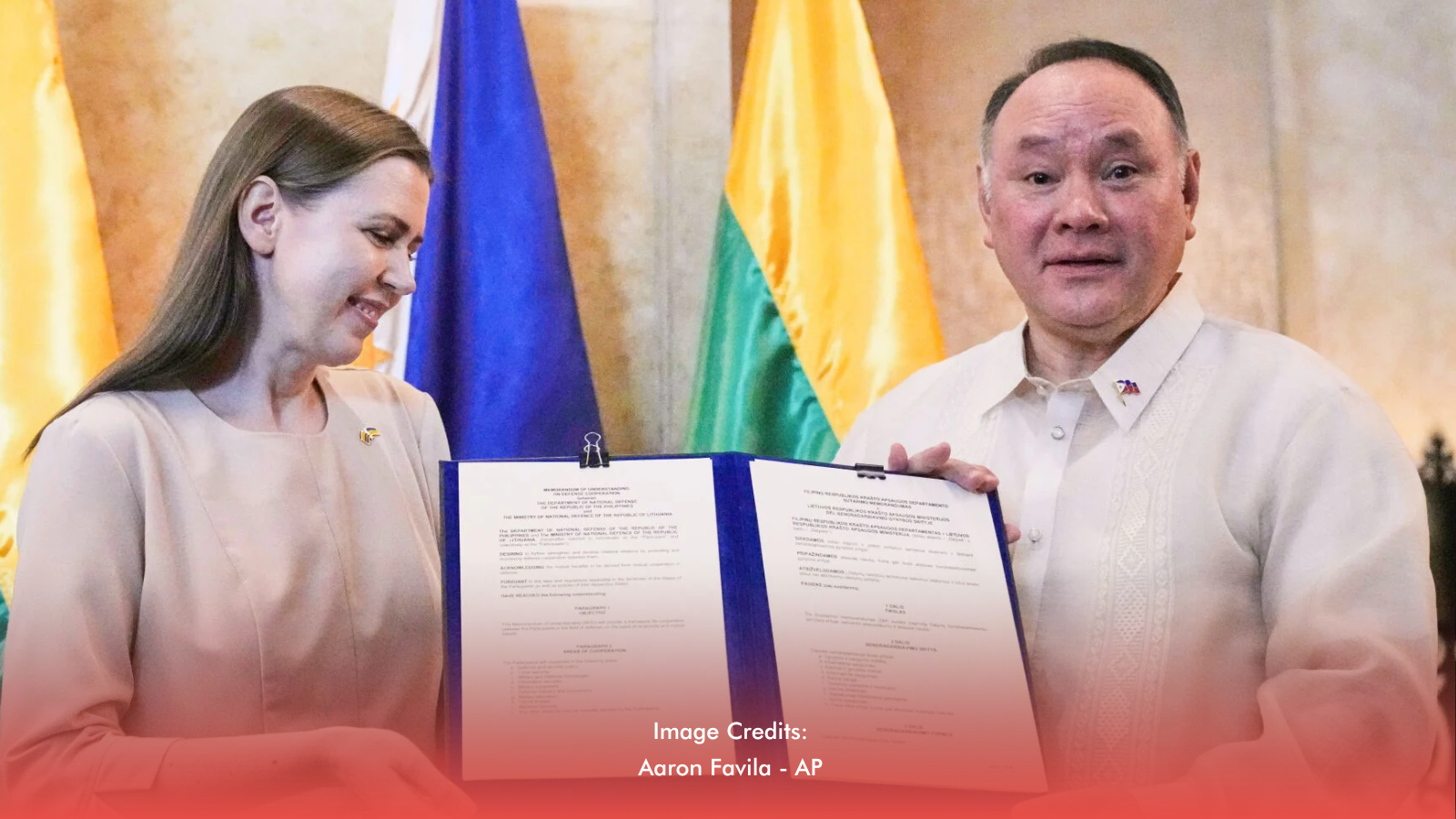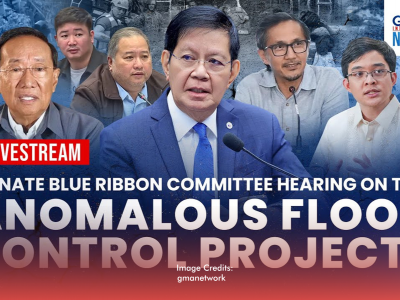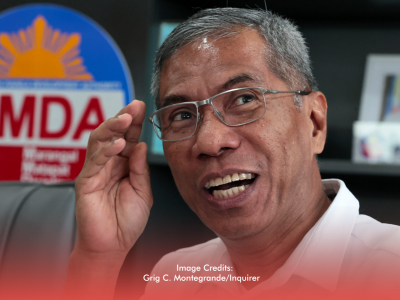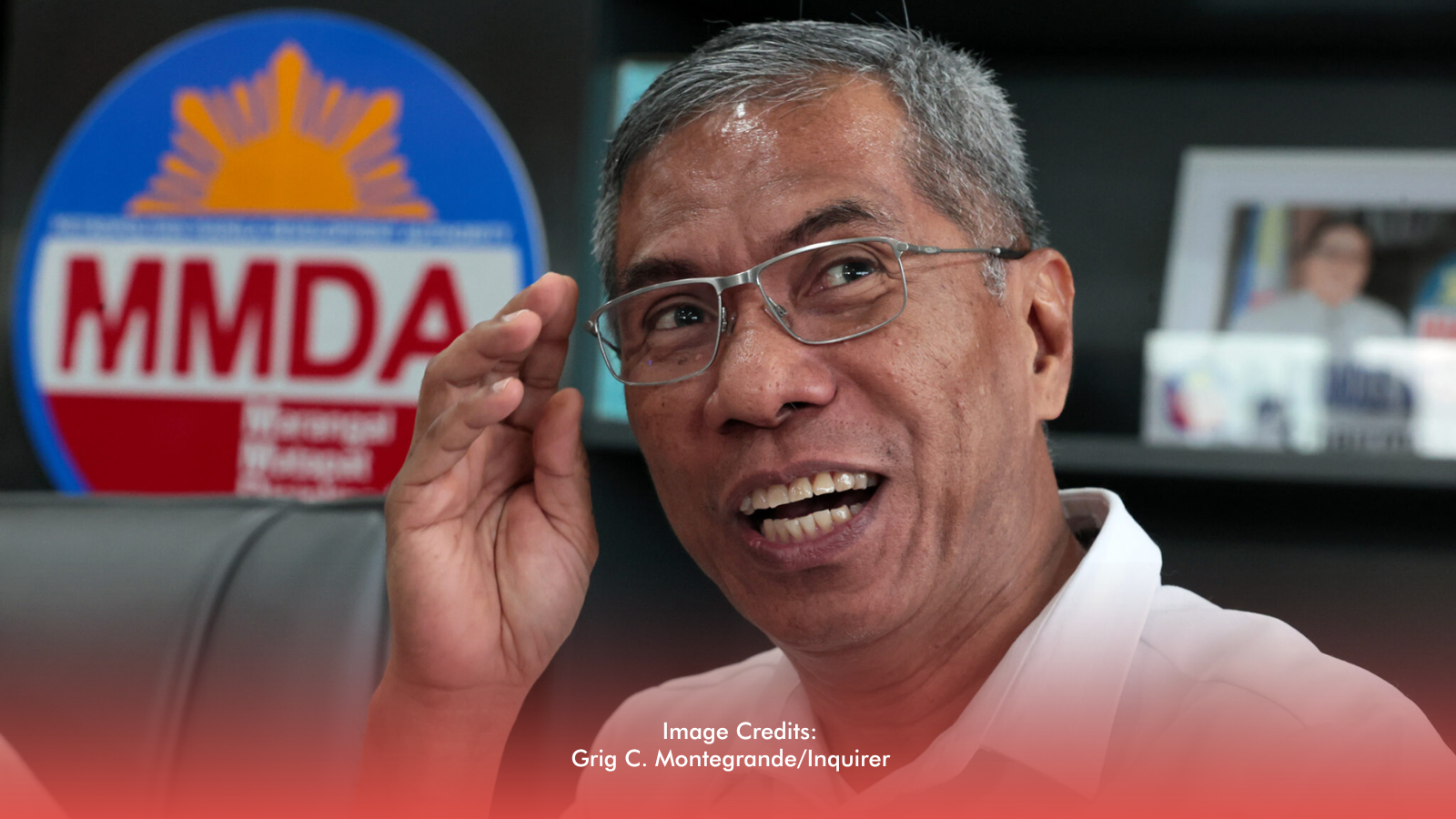The Philippines and Lithuania have formally expanded their military ties with the signing of a memorandum of understanding (MOU) on June 30, 2025, in Makati City. The agreement, signed by Philippine Defense Secretary Gilberto Teodoro Jr. and Lithuanian Minister of National Defence Dovil? Šakalien?, marks the first official visit by a Lithuanian defense minister to the country.
The pact aims to foster deeper military collaboration between the two nations through joint training, cybersecurity cooperation, defense industry partnerships, and maritime domain awareness. Both sides underscored the importance of building resilience against common threats—ranging from hybrid warfare and disinformation to territorial encroachments—amid shifting global security dynamics.
RELATED: [DND's Proposed Budget for 2025: Building A Safer Future]
Broader Cooperation on Shared Threats
The MOU outlines areas of cooperation such as cyber defense, strategic policy exchanges, joint military training, and collaboration on munitions and defense technologies. A key emphasis was placed on countering hybrid threats and safeguarding critical infrastructure—priorities shared by both nations given Lithuania’s proximity to Russia and the Philippines’ concerns in the West Philippine Sea.
“This MOU provides a solid framework for practical cooperation between our defense establishments in addressing evolving threats — from hybrid warfare to maritime challenges,” Defense Secretary Gilberto Teodoro Jr. emphasized during the signing ceremony.
The agreement was a product of follow-up discussions held after the Shangri-La Dialogue in Singapore on June 1, where both countries expressed interest in working more closely to protect democratic institutions. Šakalien? said the partnership showed how small and mid-sized democracies could “stand stronger together” in the face of rising authoritarian aggression, highlighting how authoritarian states are “cooperating very efficiently.”
Reinforcing the Philippines' Strategic Outlook
For the Philippines, the deal aligns with President Ferdinand Marcos Jr.'s broader strategy to establish an "arc of alliances" to bolster national security. It adds to Manila’s growing list of defense engagements with traditional and non-traditional partners such as Japan, Australia, France, and NATO.
“There is also a lot to learn from Lithuania in technology, in resilience, as the extensive topics that were stated by her excellency the minister earlier, and we look forward to deepening our ties with Lithuania,” Teodoro shared.
While the MOU is non-binding, it lays the foundation for sustained collaboration, particularly in information-sharing, maritime security, and capacity building. Secretary Teodoro noted that the agreement reflects a commitment to uphold international law and a rules-based order, especially in maritime spaces under dispute.
Lithuania’s defense chief reiterated support for the 2016 arbitral ruling favoring the Philippines’ claims in the West Philippine Sea, further solidifying the values-based nature of the partnership. As tensions rise across multiple regions, the Philippines–Lithuania defense agreement sends a strong signal: democracies, regardless of size or geography, are choosing to stand united.








